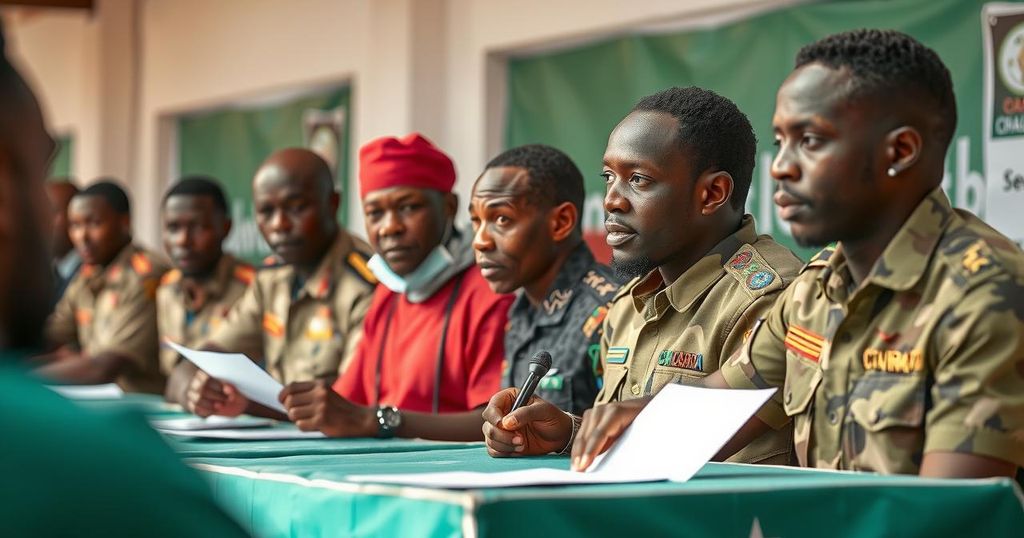Chad Votes in General Election Amid Low Turnout and Opposition Boycott
Chad conducted a general election amidst low voter turnout as opposition groups called for a boycott, asserting the results were predetermined. President Mahamat Idriss Deby Itno’s government views this election as critical for transitioning to democracy, but widespread skepticism and allegations of electoral fraud challenge the legitimacy of the process.
Chad held a general election on Sunday following a three-year period of military rule, with the government claiming that this event marks a significant step towards restoring civilian governance. However, reported voter turnout was notably low at just 38 percent, as many opposition groups encouraged citizens to abstain from the election, asserting that the outcomes were pre-determined. The election’s legitimacy is further undermined by allegations of fraud during the recent presidential election that saw the military-installed President Mahamat Idriss Deby Itno officially recognized as the leader.
Despite the low participation from the populace, officials in affluent areas attributed the lack of voter engagement to adverse weather conditions. Contrarily, opposition party leader Succes Masra stated that the boycott has led to an overwhelming majority of people staying home. This boycott effectively clears the path for candidates supportive of President Deby, whose leadership has faced criticism for being established through military means rather than democratic processes.
In terms of turnout among specific groups, the election management agency reported substantial turnout from military personnel and nomadic populations. Yet, common citizens expressed skepticism about the electoral process, with some deeming it futile to vote in a system they perceive as lacking genuine democratic practices. The elections are being observed by international monitors amid ongoing security concerns, particularly from jihadist attacks in the Lake Chad area, as well as tensions with neighboring Sudan.
Ultimately, the Chadian government views these elections as the concluding milestone towards transitioning to democracy, although significant concerns remain regarding the validity and fairness of the electoral process under prevailing military influences.
The context surrounding Chad’s recent general election is steeped in the nation’s recent history of military rule which began three years ago. The military seized power following the death of President Idriss Déby in April 2021, resulting in a transitional government that has faced criticism for its approach to governance. The opposition parties have raised serious allegations of electoral manipulation and have declared a boycott of the elections, casting doubt on their legitimacy. Chad’s political landscape is characterized by instability, marked by threats from groups like Boko Haram and challenges arising from socio-economic conditions, particularly for marginalized groups such as nomadic communities. As Chad attempts to progress towards democratic governance, the electoral process remains under scrutiny both domestically and internationally.
Chad’s general election symbolizes a pivotal opportunity for the nation to advance towards democratic governance after three years under military control. However, significant obstacles are evident, including widespread voter apathy driven by calls for a boycott from opposition parties and allegations of fraud. While the government perceives these elections as a critical step towards establishing democracy, the prevailing discontent among the populace raises questions about the legitimacy of the electoral outcomes. Moving forward, the successful transition to civilian rule will require substantial efforts to address the rooted frustrations and ensure that the electoral process is both transparent and representative.
Original Source: www.wyomingnewsnow.tv




Post Comment